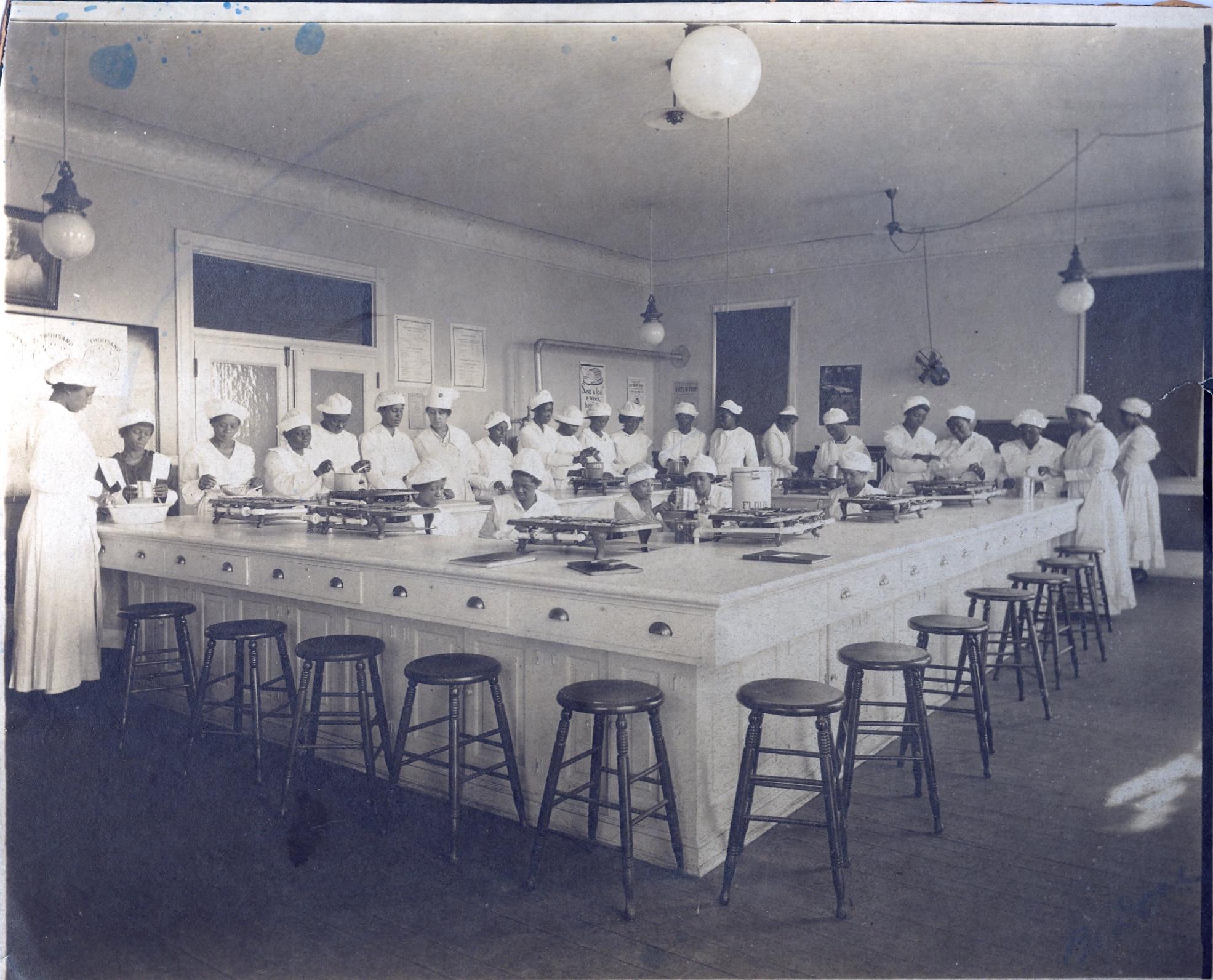The New Orleans School of Domestic Science opened October 15, 1917 with 200 women and 500 girls attending in the school’s first year.1 The New Orleans Gas Light Company leased a building to educate “the colored race” in the use of gas for cooking purposes. It cost about $4,000 in 1917 to renovate the building in order that two domestic classes could be conducted at the same time, one class upstairs and the other on the lower floor.
The Gas Light Company partnered with the city of New Orleans to offer schooling that would provide gas-educated domestic labor to the city’s residents. The gas industry felt that an important hindrance to the sale and more satisfactory use of gas as a cooking medium was the untutored colored cook. Unfortunately for the gas industry the colored domestics of the time preferred the coal range because they got more satisfaction out of using that medium therefore, the housewife had to agree for the colored domestic to do the cooking on the coal stove, allowing the gas range to remain idle.
The gas industry felt that the gas range belonged to scientific cookery and that efficiency in domestic service must always mean the general and satisfactory use of gas appliances. Since, as they said, most of the domestic work in the south was done by colored women, it was to the decided advantage of corporations promoting the benefits of the gas industry to promote the means of breaking down the barriers created by the domestics’ fear and ignorance.
The first of any organizations to try this educational campaign work was in Tampa, FL which for three years had been operating the Tampa School of Household Arts for the training of colored girls and women. Other towns followed Tampa’s lead and, after President Benoist of the New Orleans Gas Light Co. attended a convention of Southern Gas Associations held in Roanoke, VA, he decided on a similar campaign in New Orleans. The Tampa Gas Co. allowed their demonstrator, Mrs. Blanche Perkins, to establish the New Orleans school. She conducted meetings in colored churches where she came into contact with many of the cooks and servant girls of the city. She then set up a system in which ministers recommended women and girls for entry to the school.
In a very self-serving social mission the gas industry acknowledged that the public schools of New Orleans did not offer domestic science training for negro girls. The industry decided to make arrangements to train them in a school provided by the gas company since thousands of them left school each year to earn a livelihood as cooks or maids, and thus became of much concern to the gas industry of the community.2
The blogger’s maternal grandmother, Beaulah Helen Igy (Igye, I Guy, Argile) graduated from the New Orleans School of Domestic Science which was located at 2220 Dryades Street3 with graduation exercises held at the Pythian Temple, Gravier and Saratoga Streets in New Orleans.4
Sources: 1”For Peace and Civic Righteousness”; Blanche Armwood and the Struggle for Freedom and Racial Equality in Tampa, Florida, 1890 – 1939, Michele Alishahi MA thesis, 4/11/2003; 2”Aid Colored Help,” The Gas Record, Chicago, IL, Vol. 12, No. 1, July 11, 1917; 3City Directories of the United States, Segment IV, 1902 – 1935, New Orleans, Louisiana 1918 – 1919, reel 9; 4Original document.
L.A.G.




This is a very interesting post! Amazing how much of an “investment” was made into having skilled domestic workers. I have read something similar about how in Atlanta, employers encouraged and supported evening lectures and seminars for their domestics to keep them out of the dance halls. The Gas Company realized they could sell more gas fixtures if the folks who did the cooking knew how to work with gas!